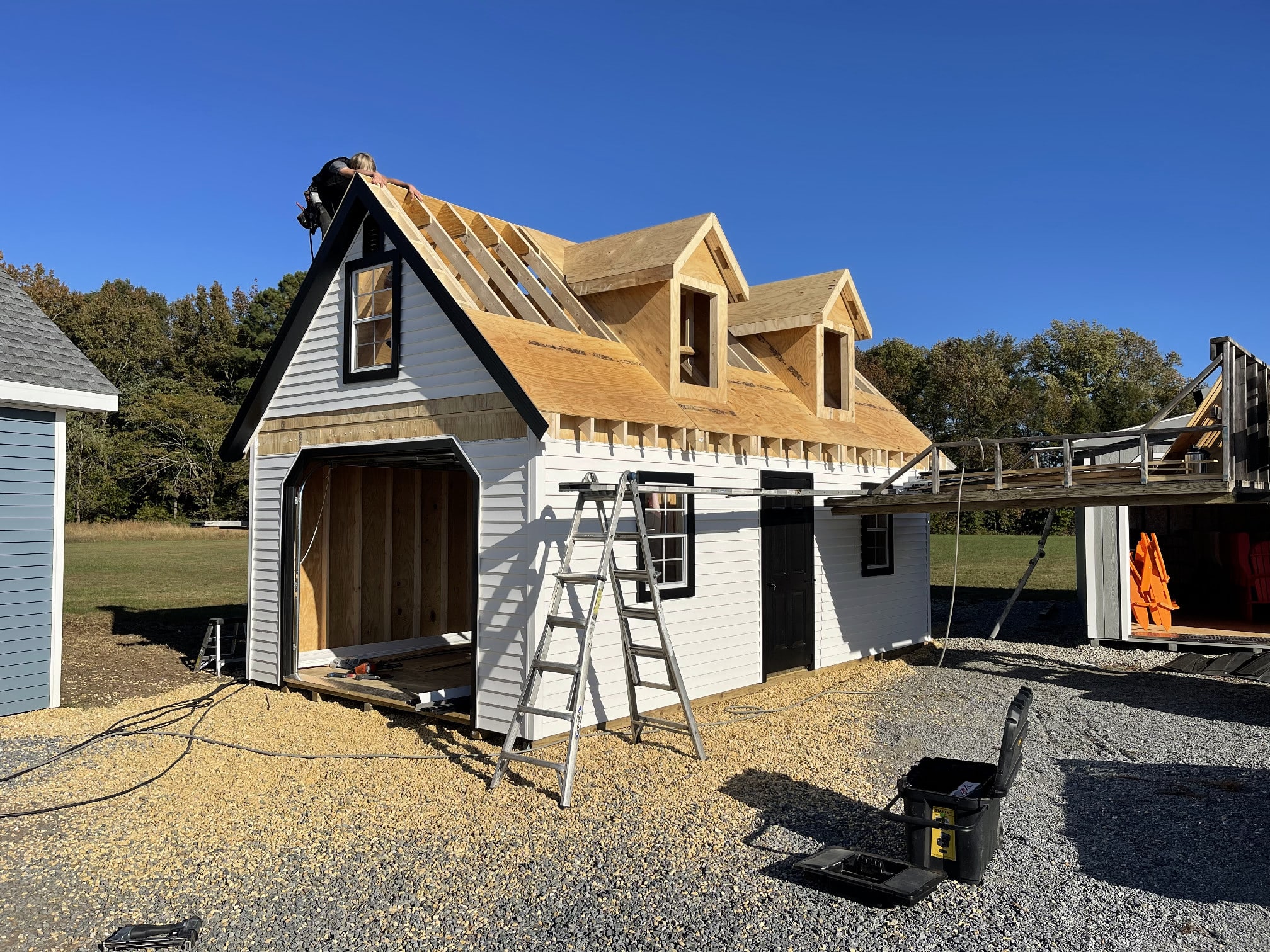
Choosing the right garage material is more than just an aesthetic decision—it’s a long-term investment, especially when building in a climate like New Jersey’s. From humid summers to freezing winters and everything in between, New Jersey homeowners must weigh their options carefully. When it comes to garages and sheds in NJ, the most common material choices are vinyl and wood. Each offers unique advantages and potential drawbacks depending on your priorities.
In this blog, we’ll break down how vinyl vs. wood garages perform in New Jersey’s dynamic climate, considering durability, maintenance, energy efficiency, style, and cost.
Material Durability in New Jersey’s Climate
One of the first factors to consider is how well your garage material can stand up to the local weather.
- Vinyl garages in NJ are known for their resistance to moisture, mold, rot, and pests. They don’t swell, warp, or crack due to weather changes, making them ideal for coastal towns and areas with high humidity or snowfall.
- Wooden garages in NJ, while sturdy, require more protection against moisture. Without regular upkeep, wood can absorb water, leading to rot or warping over time. That said, when maintained properly, wood can also last decades and remain structurally sound.
Maintenance & Longevity
Maintenance plays a huge role in the long-term value of your investment.
- Vinyl garages for sale near Flemington NJ are popular for their low-maintenance appeal. You won’t need to paint, stain, or reseal them over time. A simple rinse with a garden hose is often enough to keep them looking fresh.
- In contrast, wooden garages for sale near Flemington NJ require periodic staining or painting to prevent moisture damage and maintain appearance. They’re also more susceptible to insect damage without proper treatment.
Style & Design Preferences
Your garage should complement your home’s style and surroundings.
- Wooden garages offer timeless appeal. They provide a classic, rustic look that works beautifully in traditional or farmhouse-style homes. Wood is also easier to customize if you’re looking for unique architectural details.
- Vinyl garages bring clean lines and a polished finish. They’re available in a wide range of colors and textures, and their sleek appearance pairs well with modern or contemporary home designs.
Cost Comparison
Price is always a consideration—and not just upfront costs, but long-term value too.
- Vinyl is typically more affordable upfront and continues to save you money with lower maintenance needs over time. This makes vinyl garages for sale near Flemington NJ a smart financial choice for budget-conscious buyers.
- Wood can cost more initially, and over the years, the cost of maintenance and repairs may add up. However, for those prioritizing aesthetics or resale appeal, the investment may be worth it.
What Works Best for Sheds in NJ?
For anyone researching sheds in NJ, these material considerations apply to smaller structures as well. Whether you’re buying a garage or a shed, New Jersey’s climate demands materials that can handle moisture, snow, wind, and sun.
Vinyl is often recommended for homeowners who want a simple, long-lasting solution with minimal upkeep. Wood, on the other hand, suits those who prioritize classic style and don’t mind a little extra maintenance.
Conclusion
When deciding between vinyl and wood garages in NJ, it’s all about balancing your needs and preferences. If you want low-maintenance durability, go with vinyl. If you prefer timeless charm and flexibility, wood could be your winner. Either way, the right choice depends on how you plan to use your garage and what kind of return you expect on your investment.
Still unsure? Our team specializes in garages and sheds in NJ and can help you evaluate what’s best for your home, property, and budget. Let’s make your outdoor structure both functional and future-ready.
FAQs
How often do wooden garages need resealing?
Sheds For Sale NJ notes that wooden garages must be stained, sealed or painted regularly to stay water-resistant in variable climates for most homeowners this means resealing every two to three years, or whenever the finish begins to fade or wear.
Are vinyl garages energy efficient?
While vinyl garages excel at resisting moisture and temperature extremes—keeping interiors dry and reducing heat gain, they aren’t inherently insulated. We offer optional insulation kits or foam inserts to enhance thermal performance and maintain comfortable temperatures year-round.
Can I customize door and window placement in a prebuilt model?
Absolutely. Every prebuilt garage from us can be tailored to your needs—choose door styles, window locations, siding, and roof options to match your home’s aesthetic and functional requirements.
